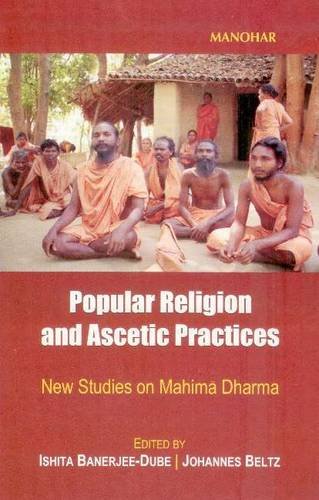

Popular Religion and Ascetic Practices: New Studies on Mahima Dharma" by Ishita Banerjee Dube is a scholarly work that provides fresh insights into the Mahima Dharma movement, a religious tradition that emerged in 19th-century Odisha, India. The book explores the intersection of popular religion and asceticism within the context of Mahima Dharma, shedding light on its historical development, beliefs, practices, and social impact.
Dube's research delves into the socio-religious dynamics of the Mahima Dharma movement, examining its origins, doctrines, rituals, and the role of its charismatic leaders, known as Mahima Gosains. The book also investigates the relationship between Mahima Dharma and broader religious and social trends in colonial and post-colonial India.
By analyzing primary sources, including texts, oral traditions, and archival materials, Dube offers a nuanced understanding of Mahima Dharma as a vibrant religious tradition that challenged established norms and hierarchies while providing spiritual solace and social support to its followers. Through case studies and historical analysis, the book illuminates the lived experiences of Mahima Dharma adherents and the ways in which their religious practices intersected with everyday life and broader social transformations.
Overall, "Popular Religion and Ascetic Practices: New Studies on Mahima Dharma" contributes to scholarship on Indian religious history, popular religious movements, and the dynamics of religious change in colonial and post-colonial contexts. It offers valuable insights for scholars and students interested in the diversity of religious expression in South Asia and the complex interplay between religion, society, and culture.
Your cart is currently empty.